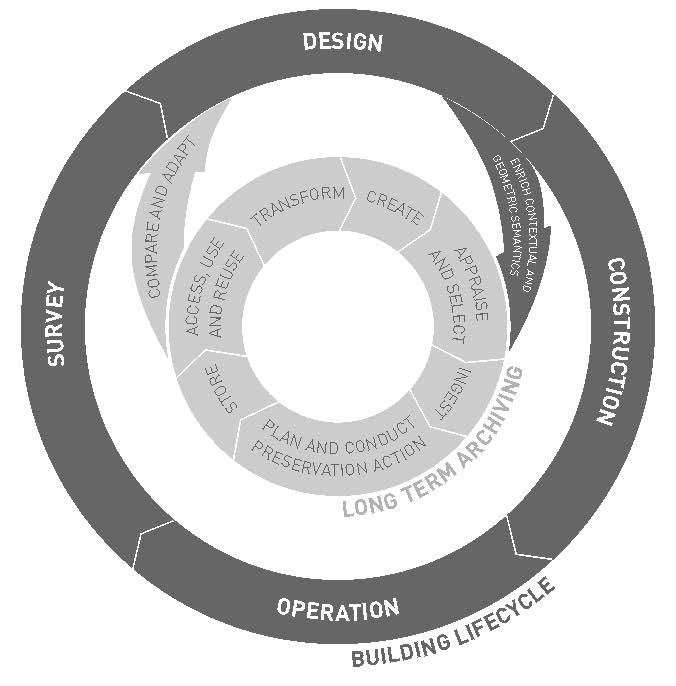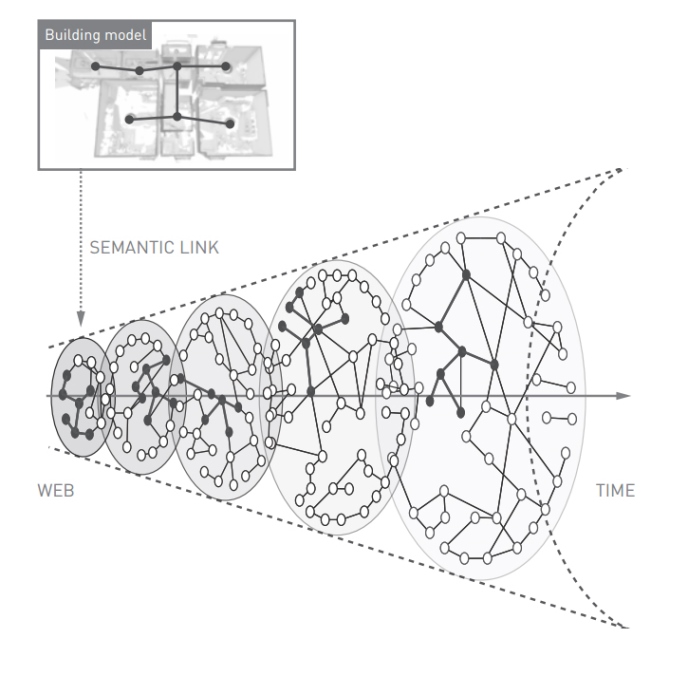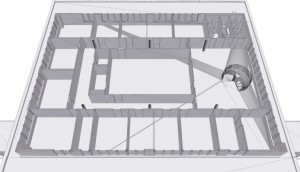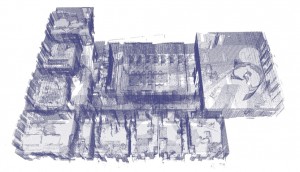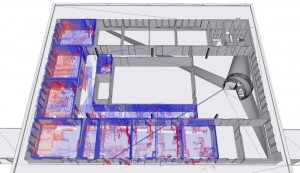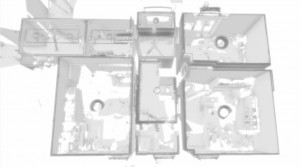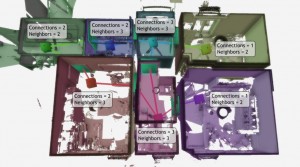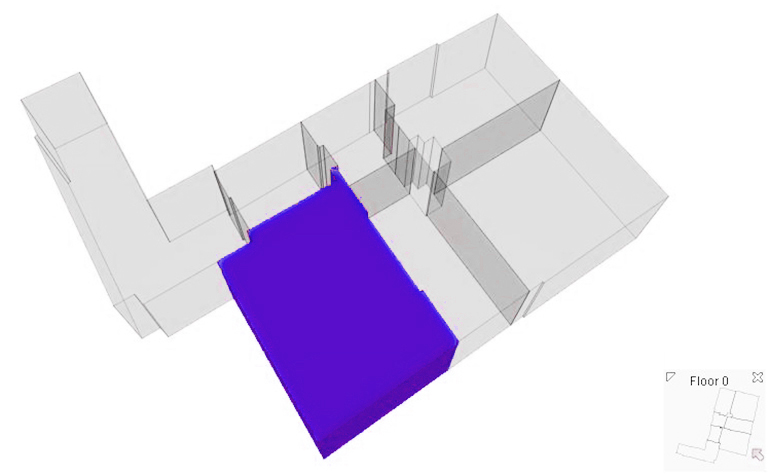Outcome
To support the emerging lifecycle of digital data in the building & architecture profession, the DURAARK project develops sustainable methods and practices for architects, building operators or urban planners. Project outcomes include concepts, methods and prototypical tools to handle architectural data in a future proof and stakeholder-oriented way within the respective domains.
Digital lifecycle in building professions
First prototype
DURAARK developed a first software prototype for the digital long-term preservation of building information models. The prototype assists data producers in the preparation of their 3D models for the submission to a digital preservation system. Following the principles of long-term preservation and future reuse, the software and process is built on established standards and sustainable formats. Covering the pre-ingest phase of long-term archiving, the DURAARK prototype contributes to best practices and standard procedures for the long-term preservation and future use and reuse of such models. The actual software is available via the URL http://workbench.duraark.eu
Semantic enrichment, methods, tools, datasets
Documentation of buildings, such as 2D/3D models or Building Information Models (BIM), are lacking
semantic information about the context of a structure or the model, which would facilitate non-ambiguous interpretation. Lacking information may include detailed material properties, vendor information, provenance data or information about legal, infrastructural and environmental context.
The Web of data is increasingly offering datasets and vocabularies, which provide such additional information. DURAARK is developing automated and semi-automated techniques to enrich building models with corresponding data, in particular Linked Data. Given the continuous evolution of Web data and vocabularies, targeted methods for crawling and archiving Web data in a scalable manner are considered an inherent part of the semantic enrichment approaches developed by DURAARK.
DURAARK develops methods for semantic enrichment of building models
Geometric enrichment
Architectural practice is characterised by a wide span of representational models ranging from highly abstract, semantically rich Building Information Models (BIM) to huge unstructured 3D Point Clouds, that precisely document the as-is state of buildings. DURAARK provides tools to bridge the semantic gap between such representations in order to enable useful long-term preservation for the architecture
community.
Data synchronization: Two different representations of the same building model can be synchronized using a semi-automated approach. (Click för larger images)
Two different representations of the same building model
Difference analysis: Deviations between as-planned and as-built state can be highlighted. Differences shown in red.
Deviations between two representations are shown in red
Semi-automated indexing: DURAARK provides tools for enhancing unstructured point clouds (left image) with higher level semantics including a segmentation into storeys and rooms (right image). This facilitates access to the data once it is archived in terms of searching and browsing.
Enhance unstructured point clouds
Access copy generation: Light-weight representations of gigabyte big point clouds allow easy handling including access via network and visualization on consumer hardware.
Light-weight representations allow easy handling

